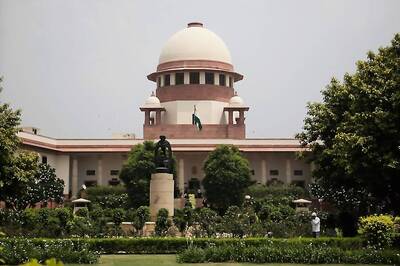
views
Visual impairment in India has gone down by just 10 percent in the last six years and blindness has reduced by only 12 percent, according to a survey conducted by the World Health Organisation. More than 450 million in India require vision correction, of which 100 million do not have access to an eye examination nor can they afford a pair of spectacles.
“The World Health Organisation (WHO) has drafted an action plan, called the ‘Vision 2020’, for reducing visual impairment by 14 percent, and blindness by 20 percent in the coming years. I am of the opinion that it is a small target,” said Dr. APJ Abdul Kalam, speaking at the inauguration of the Ninth General Assembly of the International Agency for Prevention of Blindness (IAPB) held at the Hyderabad International Convention Centre.
Addressing more than 1500 delegates, Dr Kalam opined that India must aim to reduce all vision impairments by 50 percent by the end of 2020. Suggesting a few measures, Kalam says, “It can be achieved through development of technology, sharing of knowledge through global platforms, advocacy missions by social and government organisations and improvement of infrastructure.”
He also emphasised that the countries must take up population surveys once in two years to understand the present state of impairment and blindness that prevails among the people, in order to reduce the gap.
As per the existing laws, neither the donor family nor the recipient family will be able to know details of their donor or their recipient or their families. Contradicting this law, he expressed that the government should frame a new donor friendly law, wherein both the recipients, his/her family and the donor’s family are allowed to meet each other. “It will bring happiness to all and motivate many families to come forward and donate in large numbers, which is vital to bridge the cornea need and the availability gap,” said Kalam.
Abdul Kalam also stressed that the relationship between patients and doctors, goes beyond medical needs. “It is like a relationship between a teacher and a student, wherein the student’s family is also involved. The advice of doctors is very important, as it helps in preventing diseases,” he pointed out. Further he added that Nanotechnology can help in finding large-scale application in drug delivery systems and other areas. “With widespread usage and extensive practical application, technologies like Nanotechnology will be made accessible to everyone.”
He hoped that there is more research to be done on a global level to bring out cost effective and innovative treatment process for Glaucoma and also for the early diagnosis and treatment of Retinopathy.

















Comments
0 comment